
With the help of an endowment, a small decorticator was purchased to process hemp stalks.

With the help of an endowment, a small decorticator was purchased to process hemp stalks.
Hemp producers struggle to manage weeds and have very few herbicide options available, with no conventional herbicides registered for use prior to April 2023.
The hemp industry is familiar with boom-and-bust cycles, with a surge in production acres in 2019 followed by a decline in the following years. According to Hemp Benchmarks, planted acres decreased by 42% from 2021 to 2022 in the United States. The report also showed a shift in the industry with an increase in fiber production acres from 2021 to 2022 (Hemp Benchmarks, 2022). According to the NASS report, Indiana hemp producers planted 255 acres in 2021 (Cornell University, 2022). Indiana hemp producers planted 646 acres in 2022 (OISC, personal communication). Most of the planted acres in 2022 were for grain and fiber hemp. There are 710 acres of hemp expected to be planted this season in Indiana. Over half of the planned acres are for grain and fiber hemp. The difficulty farmers face when growing this crop is not going unnoticed. Senator Braun (R-IN) and Senator Tester (D-MT) introduced[Read More…]
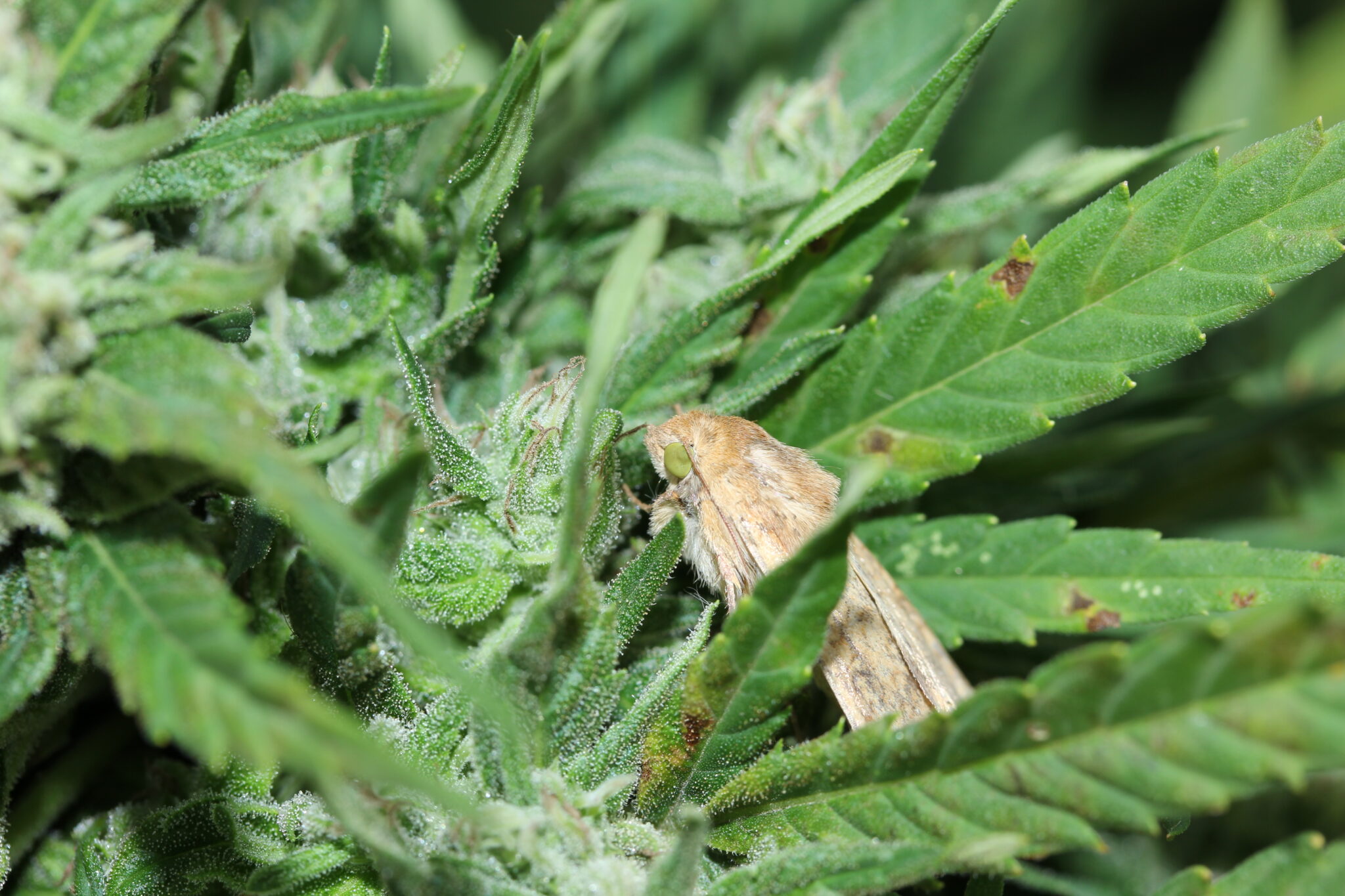
Please join us for a six-part webinar series focused on integrated pest management in hemp!
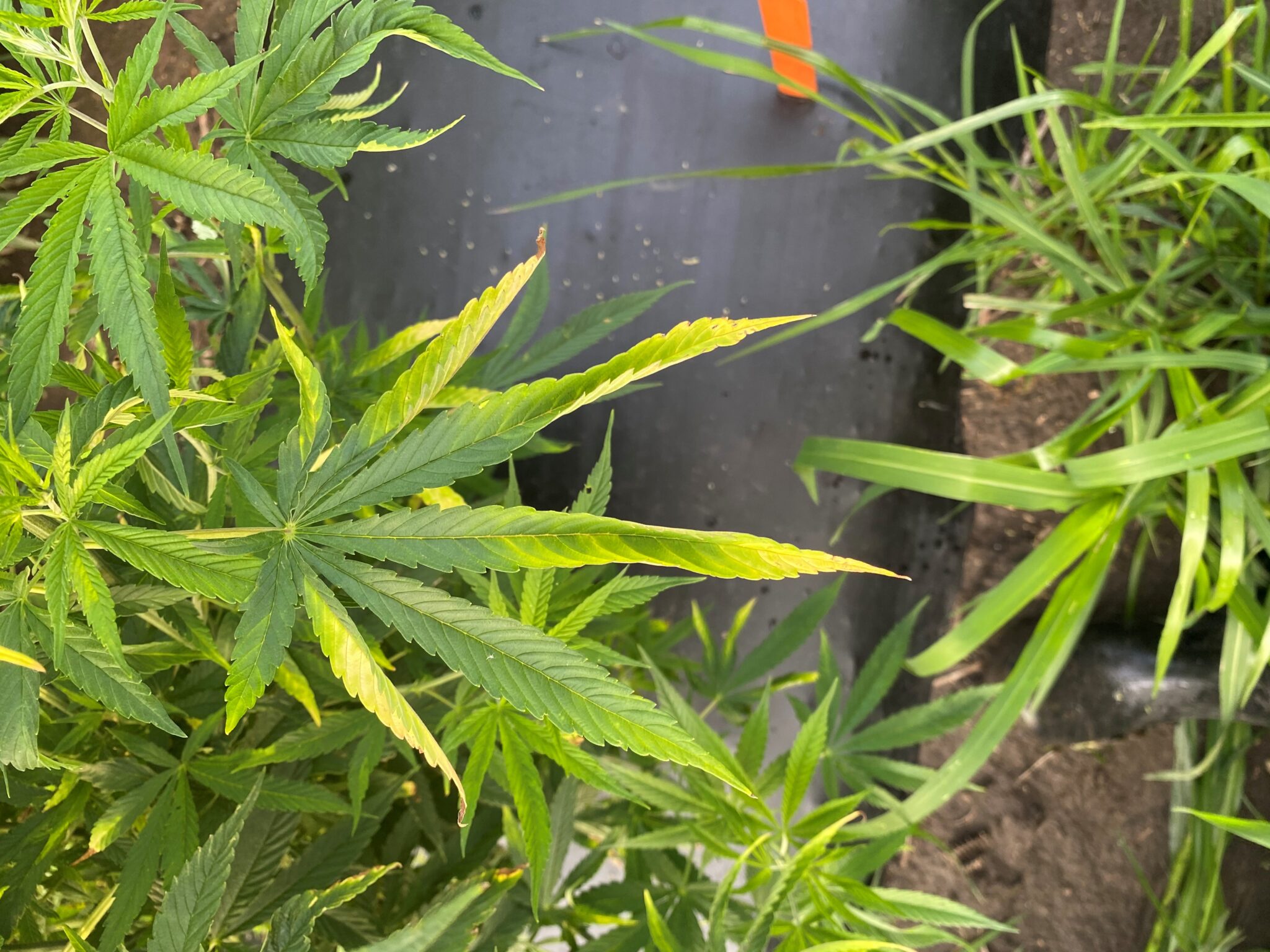
Potato leafhopper (Empoasca fabae) is back on hemp. This migratory species can cause a lot of damage to many different crop species, including hemp.
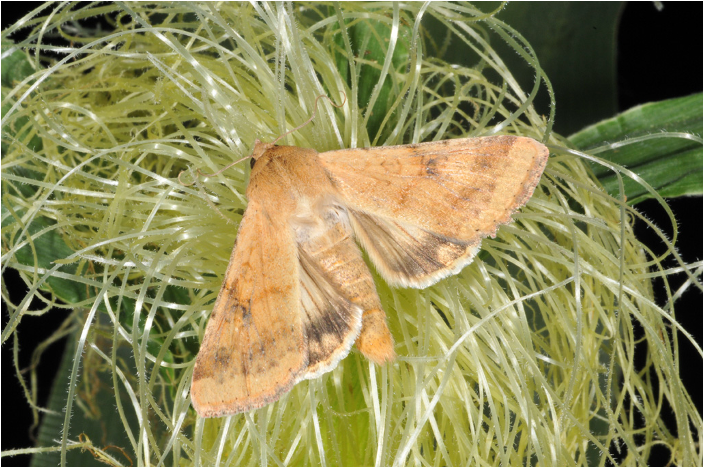
We have begun our state-wide trapping and monitoring program for corn earworm (Fig. 1).
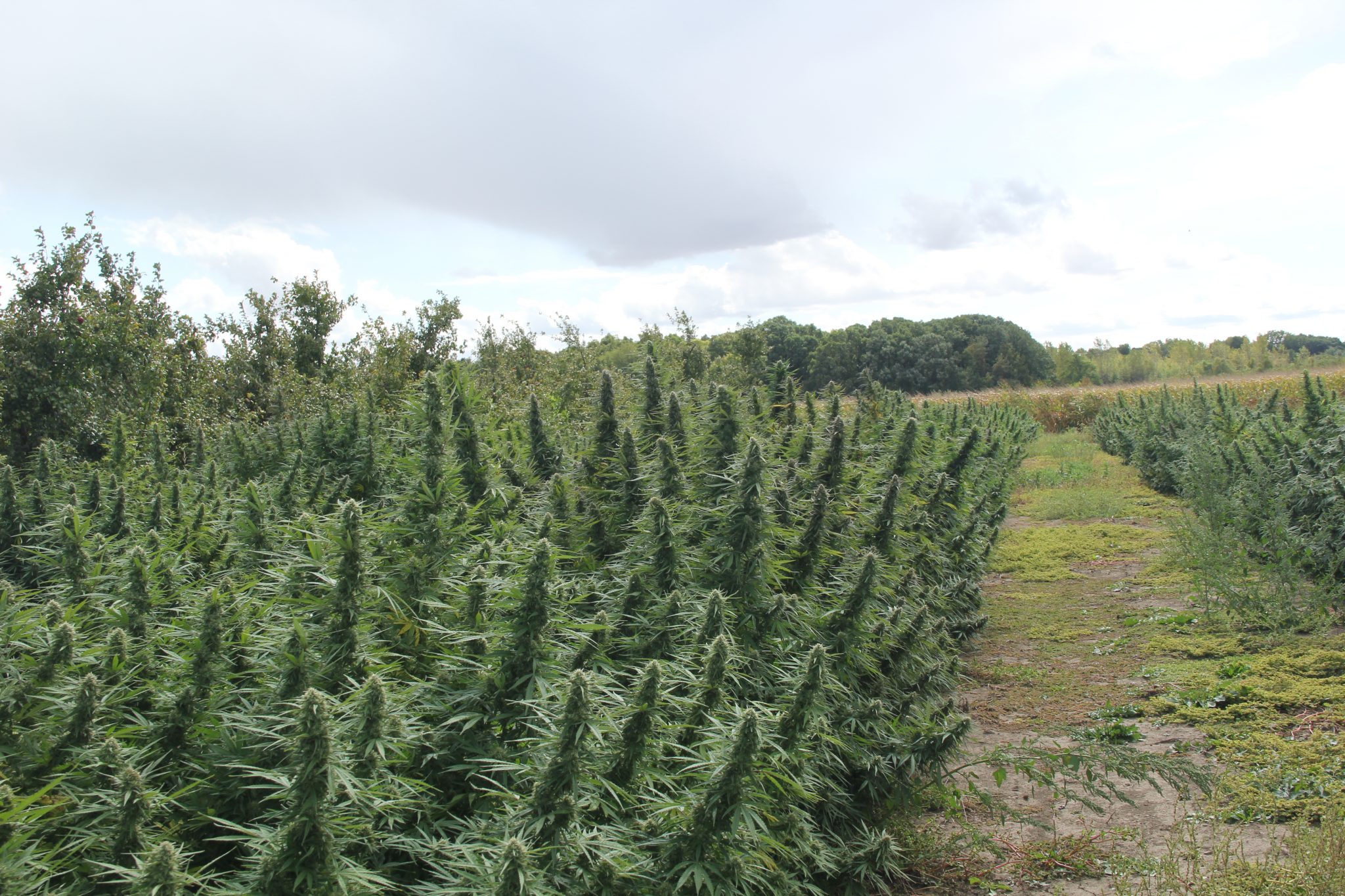
We had some chilly nights last weekend and the beginning of the week, which caused concern for some hemp growers. But, we made it through and the hemp seems to be doing alright. There are some noticeable changes in color, which could cause alarm, other than that, the hemp is unscathed. One cultivar at Meigs went from a bright green to a deep purple. The same thing happens to the forsythia in my front yard and to many other plants this time of year. Most of the data on frost tolerance and hemp is out of Canada and focuses on grain and fiber specific cultivars. Growers have harvested all the fiber hemp and most of the grain hemp. However, there is not much data on frost tolerance in cannabinoid rich hemp. The University of Vermont does have some useful information on their experiences with frost and hemp. They find that[Read More…]
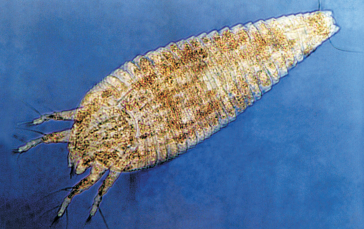
The hemp russet mite (Aculops cannabicola) is a microscopic mite that can destroy a hemp or cannabis crop. It feeds exclusively on Cannabis sp.
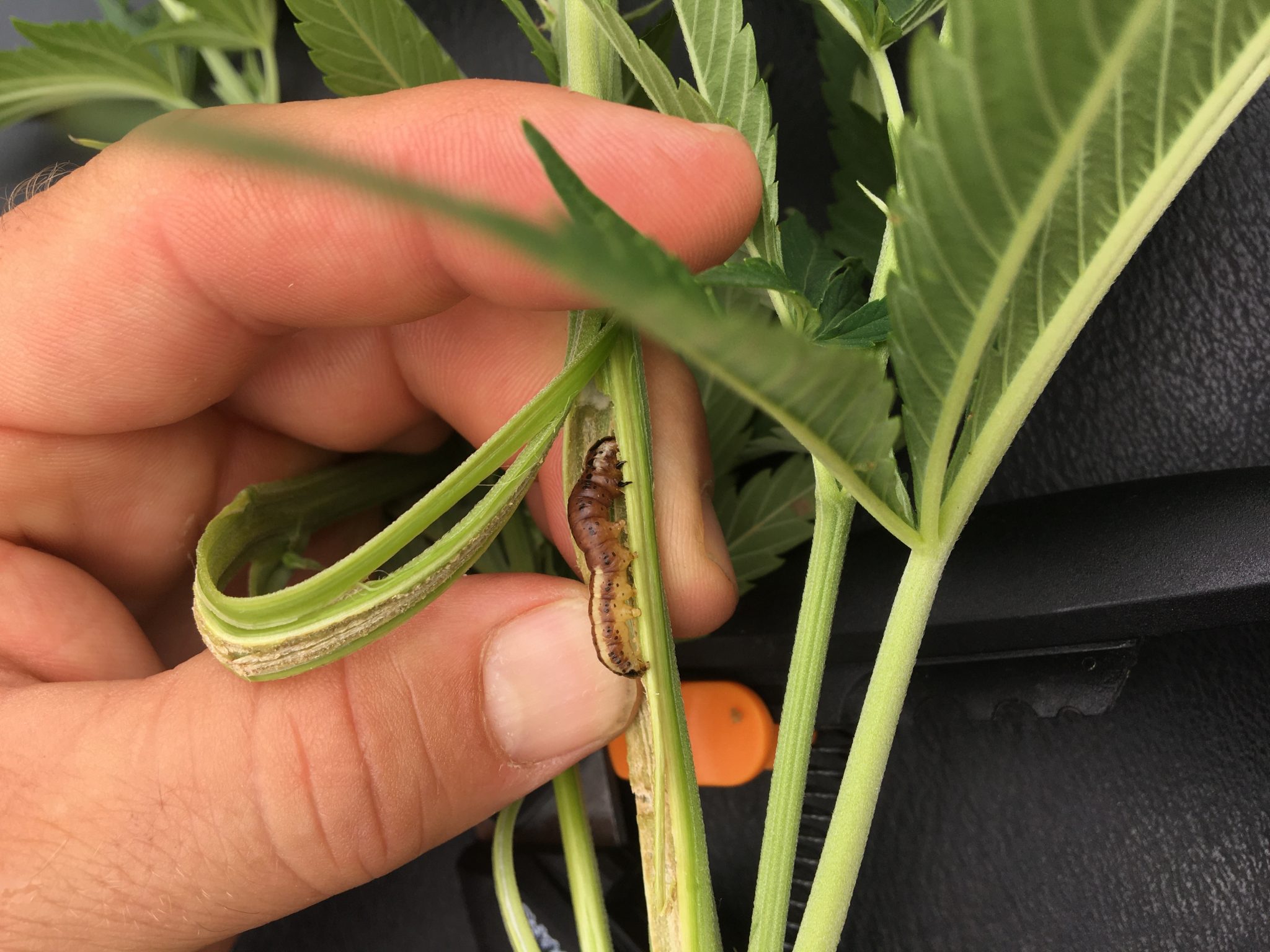
For many hemp growers, things have been calm in the field.
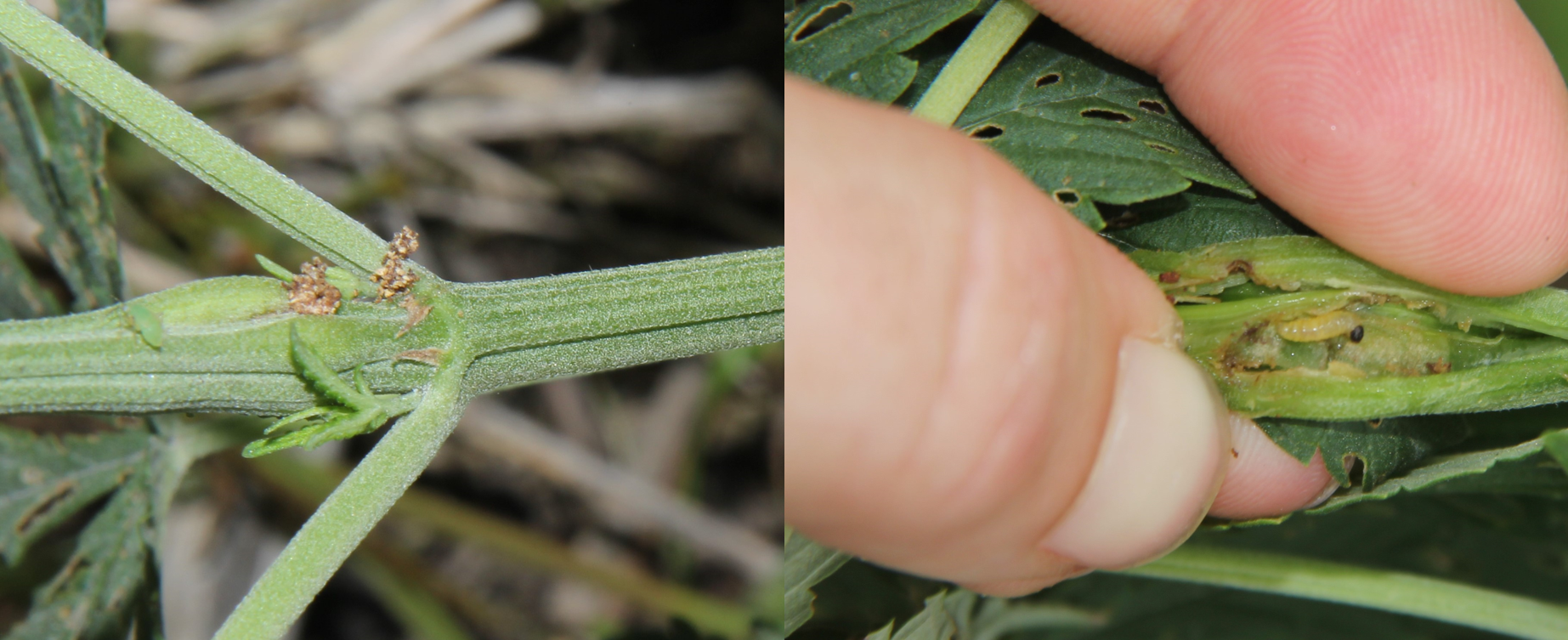
The majority of hemp is in the ground and growers are now actively managing their plants.
© 2024 Purdue University | An equal access/equal opportunity university | Copyright Complaints | Maintained by Pest&Crop newsletter
If you have trouble accessing this page because of a disability, please contact Pest&Crop newsletter at luck@purdue.edu.